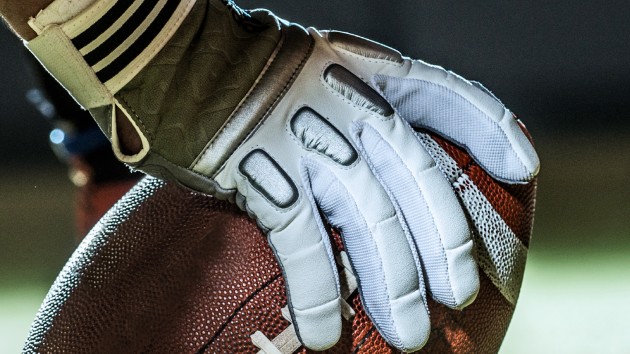
(IDAHO) — Investigators are probing the digital footprint of Bryan Kohberger, the suspect accused of killing four Idaho college students in an early morning attack last year, according to new court documents.
The documents include search warrant applications for some of Kohberger’s internet activity and some additional phone records, as well as some of the four victims’ social media accounts. There is “probable cause to believe” that those records could yield evidence regarding the November killings of Kaylee Goncalves, Xana Kernodle, Ethan Chapin and Madison Mogen at the girls’ off-campus home in Moscow, Idaho, the documents say.
Though they do not reveal details of what the warrants obtained, the records indicate that prosecutors have launched an expansive examination of Kohberger’s activities online as they probe the suspect’s possible connection to the victims – and the crimes he is accused of committing.
“The case has only just begun once you make an arrest,” said Robert Boyce, an ABC News contributor and retired chief of detectives in the New York Police Department. “You want to see what he was looking up. You want to know what he was saying, whether under his or under an assumed name on these platforms.”
“They want to establish his state of mind, who he talks to and what he talks about,” Boyce said. “There could be probative materials there.”
The Latah County Prosecutor’s Office, leading the case against Kohberger, did not reply to requests from ABC News for comment.
Kohberger, 28, was indicted last month on charges including four counts of first-degree murder and one count of burglary. At his arraignment last week, Kohberger declined to offer a plea, so the judge entered a not guilty plea on his behalf.
A trial date was set for Oct. 2.
Prosecutors allege that in the early morning hours of November 13, 2022, Kohberger, a Ph.D. student at Washington State University’s department of criminal justice and criminology, broke into an off-campus home and stabbed to death four University of Idaho students: Ethan Chapin, 20; Madison Mogen, 21; Xana Kernodle, 20, and Kaylee Goncalves, 21.
After a more than six-week hunt police zeroed in on Kohberger as a suspect, tracking his white Hyundai Elantra, cell phone signal data, and recovering what authorities say was his DNA on a knife sheath found next to one of the victims bodies, according to court documents. He was arrested on December 30 in Pennsylvania, after driving cross-country to spend the holidays at his family home in Albrightsville, PA.
The murder weapon has not been recovered, authorities have said.
Among the new documents are search warrant applications for Kohberger’s accounts on Reddit, Google and TikTok, as well as the four victims’ Snapchat accounts, and additional records from AT&T.
Investigators obtained information from the suspect’s Reddit account this spring, including his public posts and private messages with other users; saved files and photos; and location data, court documents show.
Investigators had also previously obtained records from Kaylee Goncalves’ Reddit account, earlier court filings show.
In the affidavit for Kohberger’s arrest, officials noted he had previously “posted a Reddit survey which … asked for participants to provide information to ‘understand how emotions and psychological traits influence decision making when committing a crime.'”
From Kohberger’s Google account, investigators, according to the new filings, have also pulled extensive records: emails, including drafts and trash; “hangouts” and “chats” including photos; his Google Drive, including “documents, spreadsheets, presentations and files, and associated metadata.”
The warrant also obtained information about his search and browsing history; calendar events and contacts, Google Play purchases, along with his Google Pay transactions; court documents show.
“You want to develop a profile of him in your case, sometimes a psychological profile,” Boyce said.
“They want to put a knife in that sheath, because they don’t have it right now. So you want to see if he bought it somewhere online, you’re looking at credit card receipts,” he added. “The more evidence you can put before a judge, the better you’ve got.”
Investigators also obtained additional AT&T records for a subscriber “unknown at this time,” for the specific time period of June 23, 2022 to August 1, 2022 “including any messages, records, files, logs, or information that have been deleted but are still available,” including cell tower pings that transmitted outgoing and incoming calls.
Investigators previously used cell tower data to link Kohberger to the killings’ crime scene, court documents show.
Records from “Strava,” an internet service which allows users to track their physical exercise and share their performance on social networks, were also obtained, filings show – including “biometric information” like “exercise data,” session logs, geolocation data, contacts and photos. Names and accounts obtained were redacted, but the search warrant application says there is “information related to the investigation” into the students’ killings.
Records related to the four victims’ Snapchat accounts were also obtained, according to the documents, including “communications or other messages sent or received by the accounts,” logs of previous snaps, stories and chats, and “all records pertaining to communications between Snapchat and any person regarding the user or the user’s Snapchat accounts, including contacts with support services, and all records of actions taken, including suspensions of the accounts.”
“There’s a lot to this case, technology-wise. It’s an evolving and changing field but it’s the best evidence you have – because it’s irrefutable, unbiased, human error-free,” Boyce said. “It may not be one knockout punch – but there could be overwhelming circumstantial evidence.”
Copyright © 2023, ABC Audio. All rights reserved.




